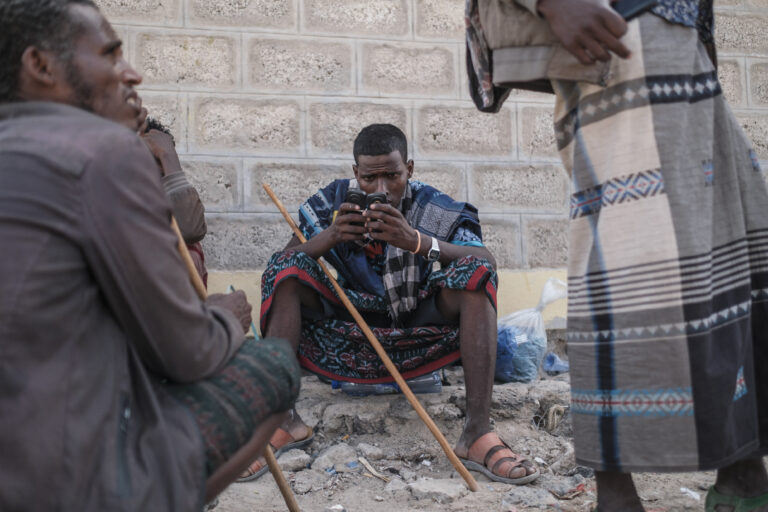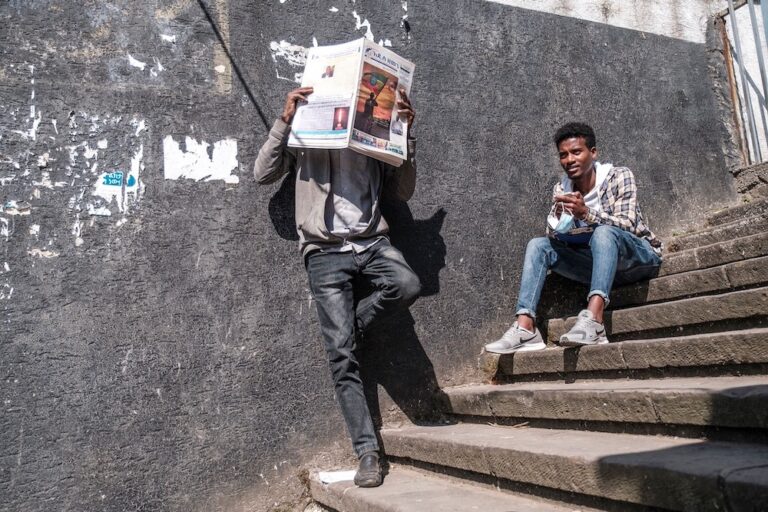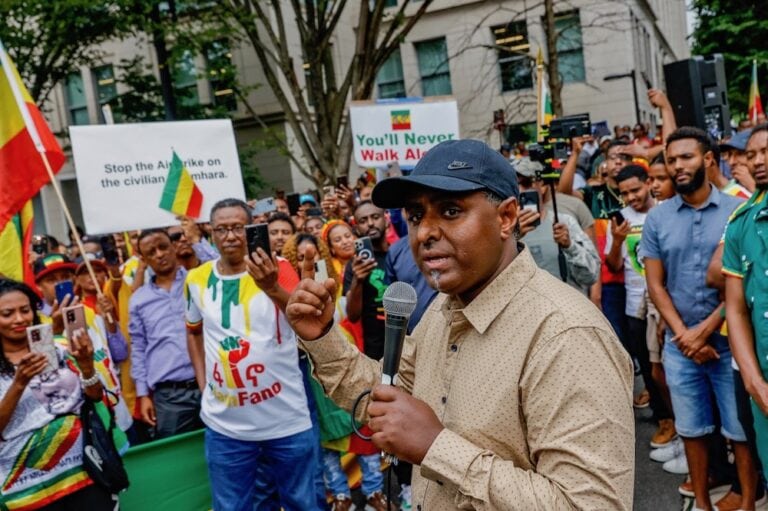Cameras belonging to the state-owned Ghana Television (GTV) and privately-owned Television 3 (TV3) were seized by officials who claimed the group had no permit to send "professional video cameras" into the country.
(MFWA/IFEX) – A group of journalists who travelled with Ghana’s Vice President, John Dramani Mahama, to cover an extraordinary African Union Summit in Ethiopia on May 25, 2011, were frustrated and prevented from covering the summit by officials with the Ethiopian Revenue and Customs Authority deployed at the Addis Ababa International Airport.
Cameras belonging to the state-owned Ghana Television (GTV) and privately-owned Television 3 (TV3) were seized by the officials because they claimed the group had no permit to send “professional video cameras” into the country.
Edem Worlanyo and Ernest Ampiah of GTV, Henry Malm and Stephen Nettey of TV3, Pascaline Adadevoh of Radio Ghana, George-Ramsey Benamba of Ghana News Agency (GNA) and Isaac Dzidzoamenu of the pro-government “Crystal Clear Lens” newspaper were delayed at the airport for about three hours while the summit was taking place.
According to the Ethiopian Revenue and Customs Authority’s officials, the information available to them about the journalists’ visit did not include them sending video cameras into the country and that they needed a clearance from the country’s Ministry of Communication.
“We do not care if you are covering the AU summit or not, we are working under superiors and we must obey the rules as well,” the journalists were told.
Media Foundation for West Africa’s (MFWA) correspondent learned that the cameras were returned to them on 27 May after they were forced to pay what officials said were “storage fees”.
Meanwhile, Ghana’s Ambassador to Ethiopia, Kwesi Quartey, has condemned the action of the Ethiopian officials. According to Quartey, this is the second time in recent months that Ghanaian journalists have been “troubled” at the airport while on official duties.
He told GNA that he would petition the authorities about what he described as the “unfair treatment” which was often meted out to the media and other Ghanaian officials who visit Ethiopia to transact business.


